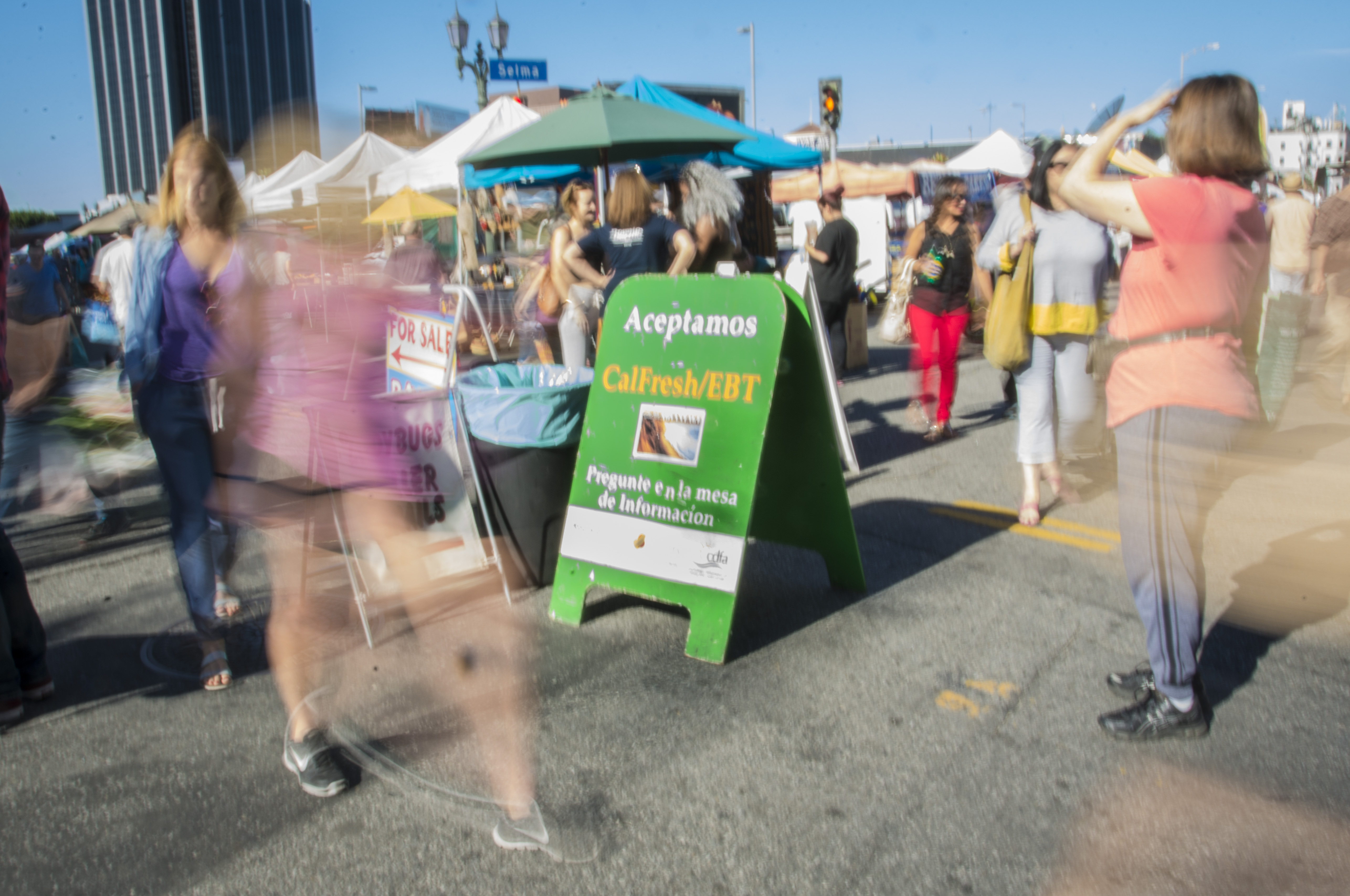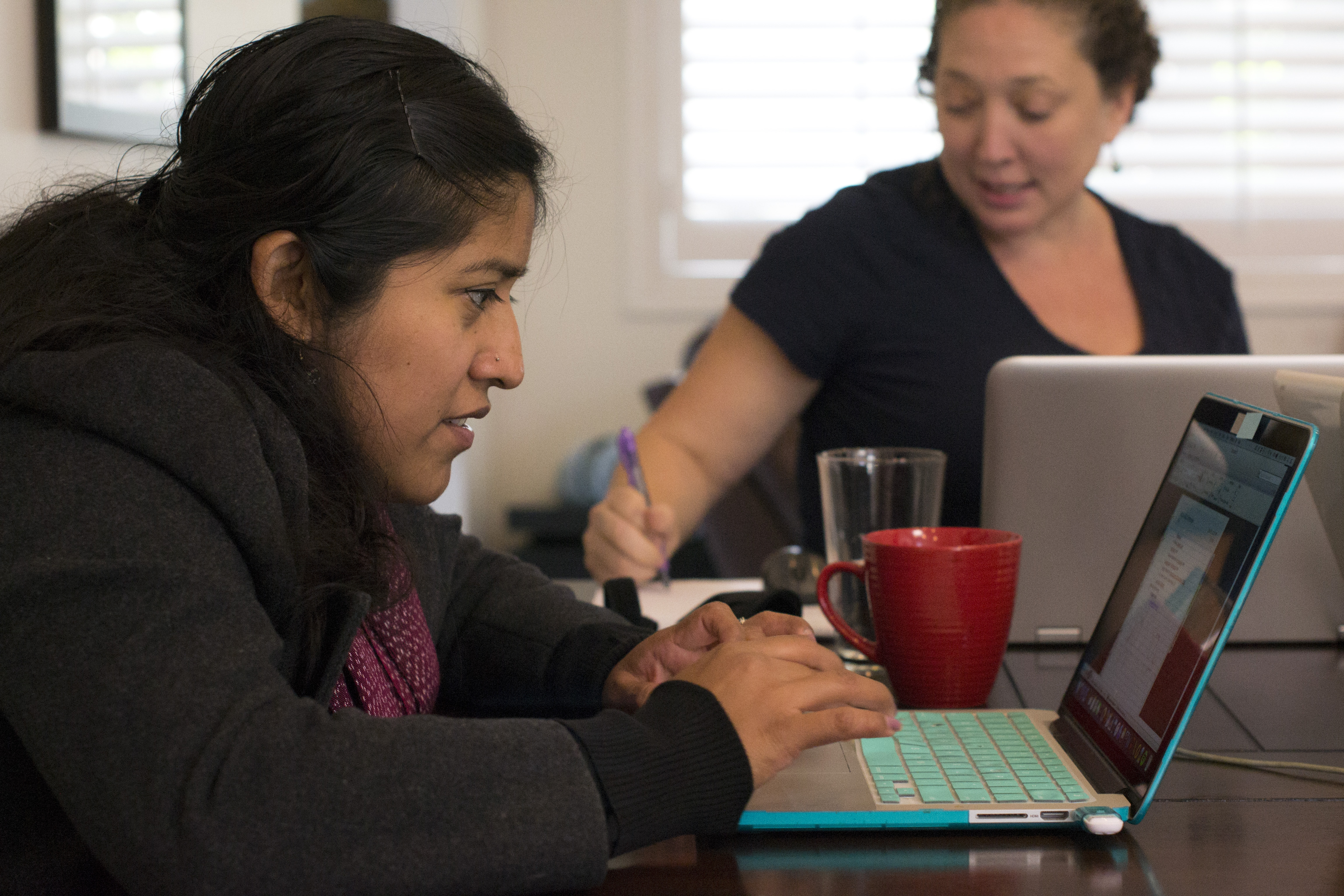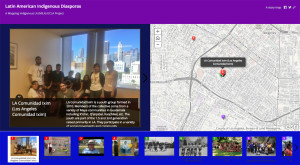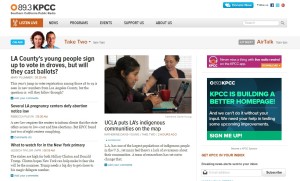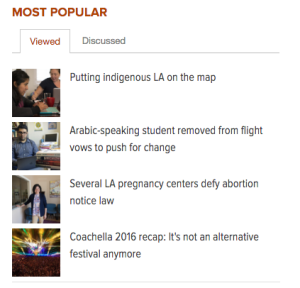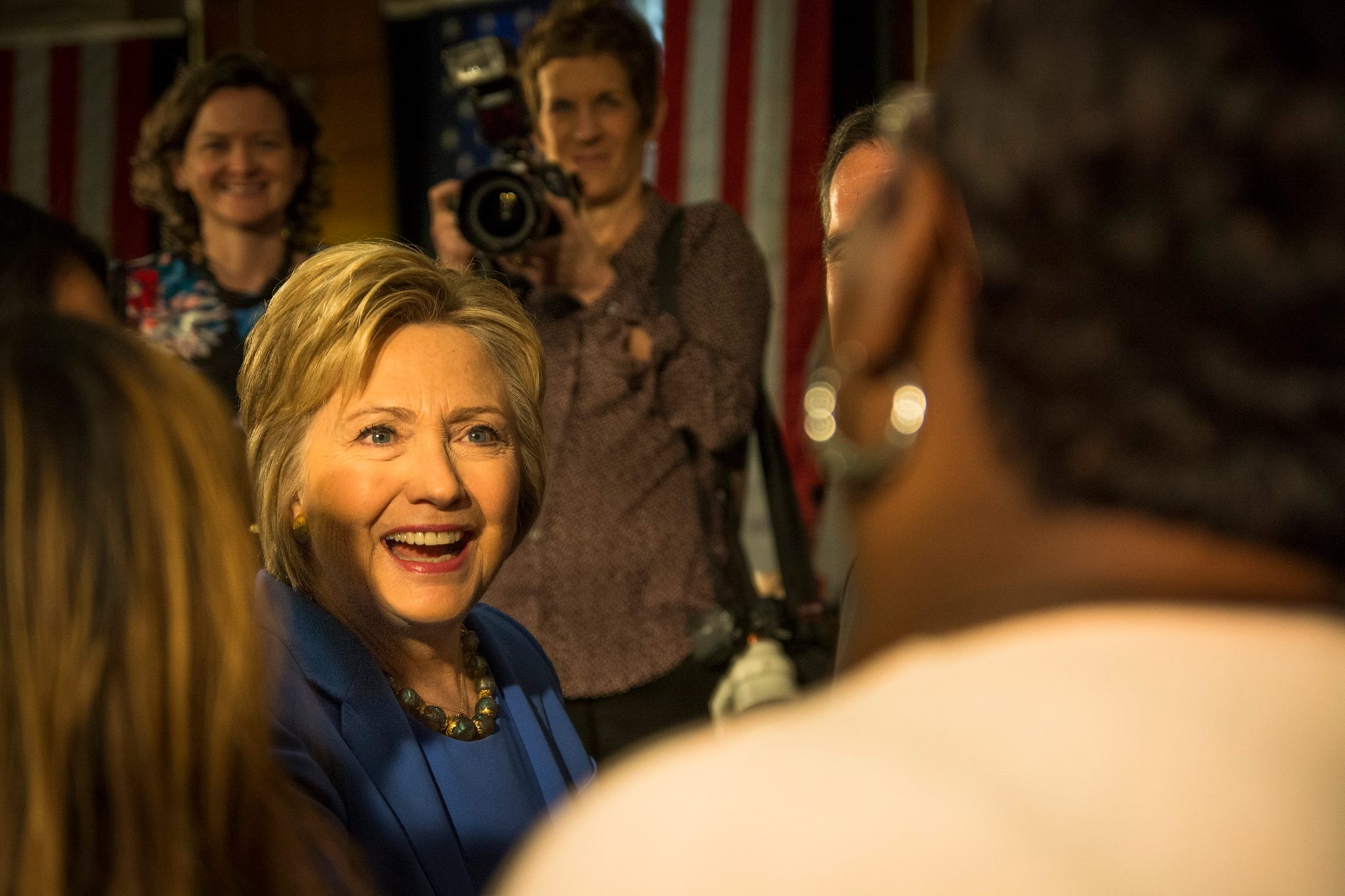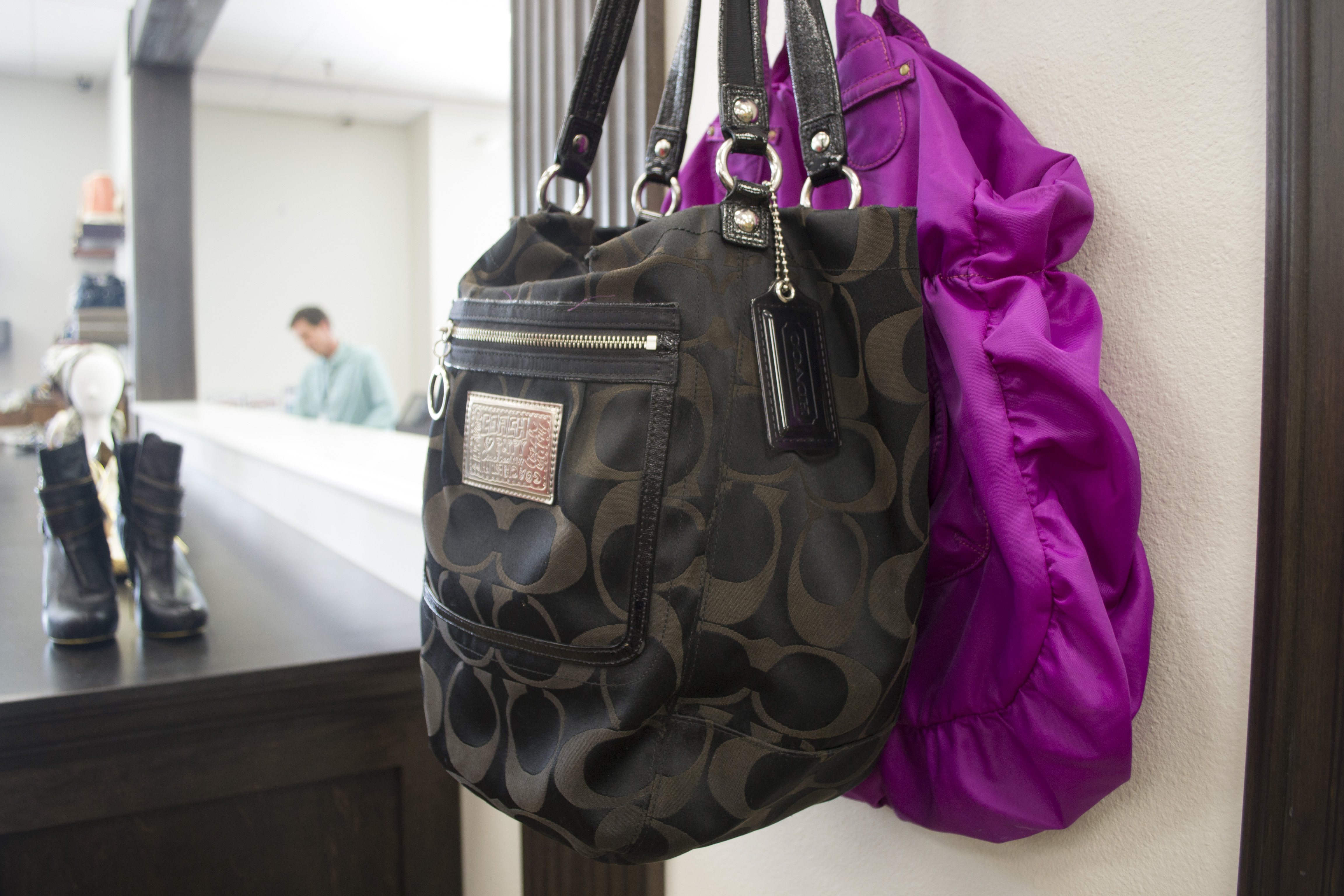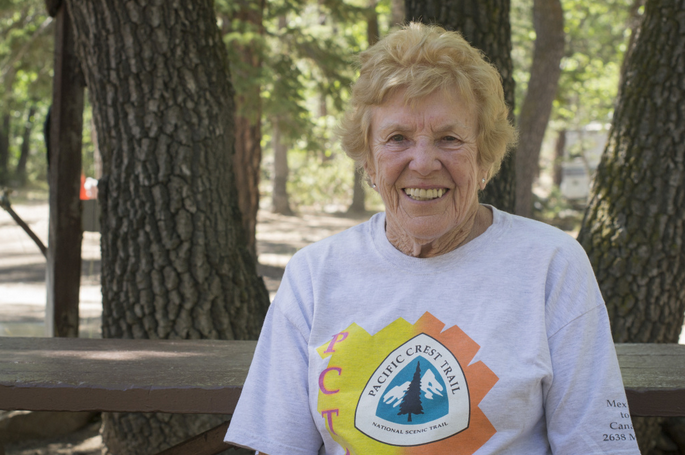Update: The Los Angeles City Council voted Friday to direct the city attorney to draft an ordinance making it mandatory for all farmers markets to accept EBT cards (the electronic equivalent of food stamps). The vote was 11-0 with four council members absent.
Every Sunday morning, the Hollywood Farmers Market pops up at the corner of Hollywood and Ivar. It’s one of about 60 farmers markets that regularly appears in the city of L.A.
Shopper Kris Jones is a regular at this market. “Vendors here have a lot more information about what makes their food healthy,” she said. “I like that you can ask questions and get answers. Going to your local grocery you don’t always get that.”
Another bonus for Jones–she’s able to pay for her produce at this market using CalFresh Electronic Benefits Transfer, or EBT, the government assistance program formerly known as food stamps.
According to County data, well over a million people in the L.A. area rely on CalFresh to buy groceries each month. Even more are eligible for the program but haven’t enrolled.
But according to the Los Angeles Food Policy Council, more than half of farmers markets in L.A. don’t accept EBT.
“It seemed very curious to us that farmers markets, which we all love, are not as inclusive to our low income neighbors as they could be,” said Clare Fox, executive director of the L.A. Food Policy Council.
Fox’s organization is working with the L.A. City Council to make EBT a requirement at all farmers markets in L.A.
Through the CalFresh program, farmers markets can get a no-cost, wireless point-of-sale device from the state–it’s a lot like a portable credit card reader. Shoppers can swipe their EBT card at the manager’s booth in exchange for vouchers that they can use at the market’s produce stalls.
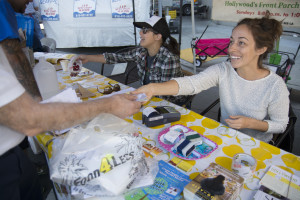
Albert Tlatoa, with the South Central Farmers Cooperative has been working at farmers markets throughout L.A. for 10 years. He’s worked at some that do accept EBT and some that don’t.
“It’s a different system for each market, each organization runs their farmers market differently. We would like to take it, but we don’t take it all the time,” he said.
He said when he can accept EBT, he definitely sees more business.
The Food Policy Council says that’s a common story. Their research suggests farmers markets that add EBT typically see an increase in revenue. Programs like Hunger Action Los Angeles’ Market Match, which provides matching funds to some EBT shoppers to incentivize shopping at farmers markets, often bring even more business to vendors, Fox said.
Even so, some markets have been reluctant to adopt EBT. Fox said many simply don’t know about the program. And getting the program set up takes a lot of paperwork.
“For farmers markets that have mostly volunteers, or a lot of turnover in staff, some of the smaller operations, that might be hard to do,” Fox said.
But City Councilman Jose Huizar, who’s backing the ordinance, said those are minor issues compared to citywide health concerns.
“If you have a farmer’s market that doesn’t have EBT, that individual who uses it is going to to go to a local store that perhaps doesn’t have fresh fruit and vegetables, so at the end of the day this is going to allow for a healthier individual with the use of EBT and a healthier Los Angeles,” Huizar said.
Huizar is optimistic that, if passed, the ordinance could go into effect within six months.
The City Council will face some challenges. Some farmers markets take place in parks, others on streets, and others on private property, so there’s no one-size-fits-all permitting process that would make it easy to enforce an EBT law across Los Angeles.
Fox said the law wouldn’t be a silver bullet solution to the city’s food access problems. There are still many more farmers markets in affluent neighborhoods than in low income areas. But Fox said, “It sends a very strong message that the city is taking proactive steps toward addressing the crisis that we see around obesity, diet-related disease, and access to healthy food facing low income communities and communities of color.”
For shoppers like Jones, the more healthy options, the better. “One of the big draws for me is being able to come here and get fresh local fruit and vegetables and all that and use my card,” she said.
Listen to this story on KPCC
